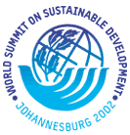Subject:
Shahida Jamil, Pakistani Environment
Minister.
You have said today's leaders are driven by
crowds. What do you mean?
Populism is a serious challenge to
democracy, especially in developing countries. Many leaders rely on
a huge mobilisation of passion, emotion, and sloganeering. They make
promises to the crowd, but these promises can never be kept. For one
thing, they donít feel any obligation to keep their promises. For
another, they make different promises to different crowds and these
promises often contradict one another.
So once these leaders get into power,
governance inevitably suffers and you end up with a crisis. People
think this is democracy, but it is not.
So what needs to change?
Well firstly, we need to question that
public support actually is. There is a trend to assuming a huge
crowd means public support, but a populist wave isn't a democratic
one.
A truly democratic leader wins a vote based
on informed consent. He has made a social contract with the people
and he comes in with his manifesto and then tries to implement it
The populist leader comes in on a populist
wave. He doesn't have true democratic support - he has emotional
support. When you see these huge crowds, you have to ask: did these
crowds come by themselves? Or did transport come up and pick them
up, giving them a joyride, letting them have a wonderful time and
then go back home.
So we need to challenge perceptions of what
leadership is. We need to create a new breed of leader and a new
conception of the importance of public service.
What do you think the consequences of
populism are?
It gives democracy in developing countries
a bad name and is throwing it into crisis.
We suffer from each leader and each leaves
his problems behind. Debts mount and misappropriation adds to debt.
Poverty increases and the environment becomes degraded.
How has this crisis in democracy affected
Pakistan?
Pakistan has suffered very badly. We used
to have a real democracy in this country, when we had to struggle
for the country to exist. Then the crowds would come on their own.
Trucks didn't have to be sent to pick them. People wanted to support
and follow their leaders. They were part of an active movement for
independence.
Now are institutions are totally degraded.
Just getting them back into running order has been a huge job. Let
me give you a tiny example. In October 1999, when the situation in
Pakistan changed, our post offices were in a terrible state. No
money had been spent on them for years. Their franking machines were
not working. Yet money had been allocated and money had been spent.
There had been a massive amount of expropriation - very little of
the money had reached the right places.
So where does Pakistan go next?
The most important thing is to create a
pressure for quality performance from our leaders. Otherwise, we
will continue to get a series of bad governments and democracy will
simply lose all credibility in Pakistan - and in the rest of the
developing world.
What is Pakistan trying to achieve at the
World Summit?
We have so much to learn here at the
summit. I have brought my team here so that they can meet people and
gain new experiences.
It is not Rio +10 we should be thinking
about, but Johannesburg +10. That is when the networks we are
forming now should be ready to show results.
27 August 2002 | 